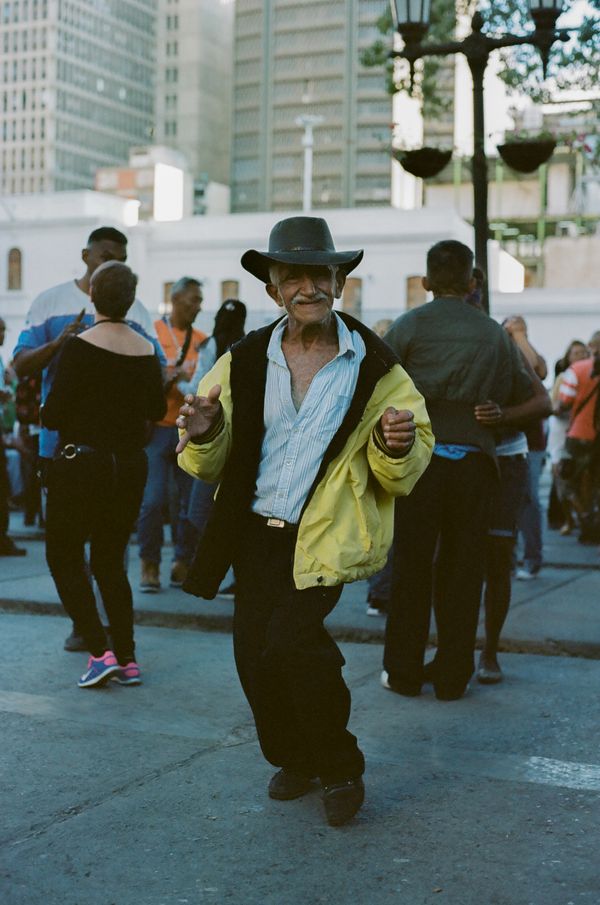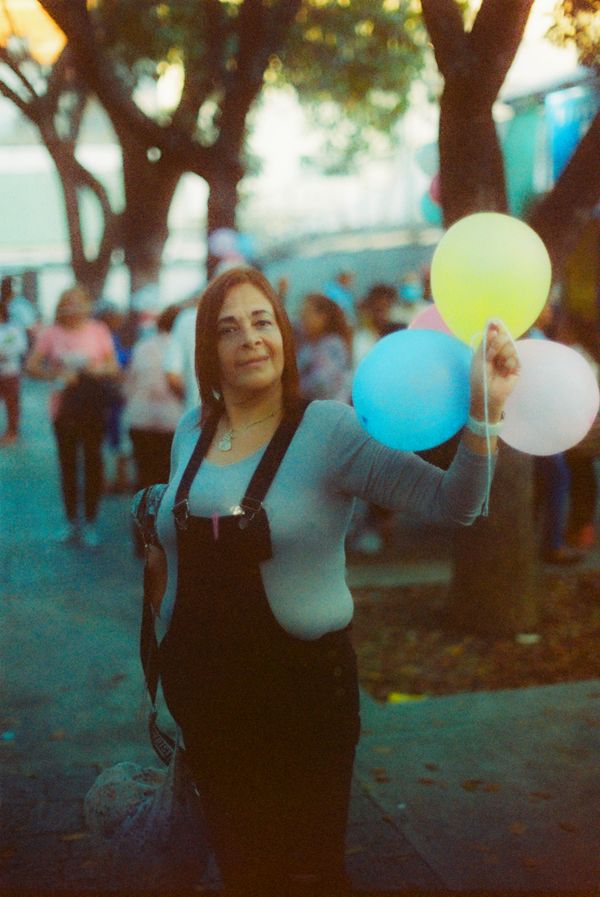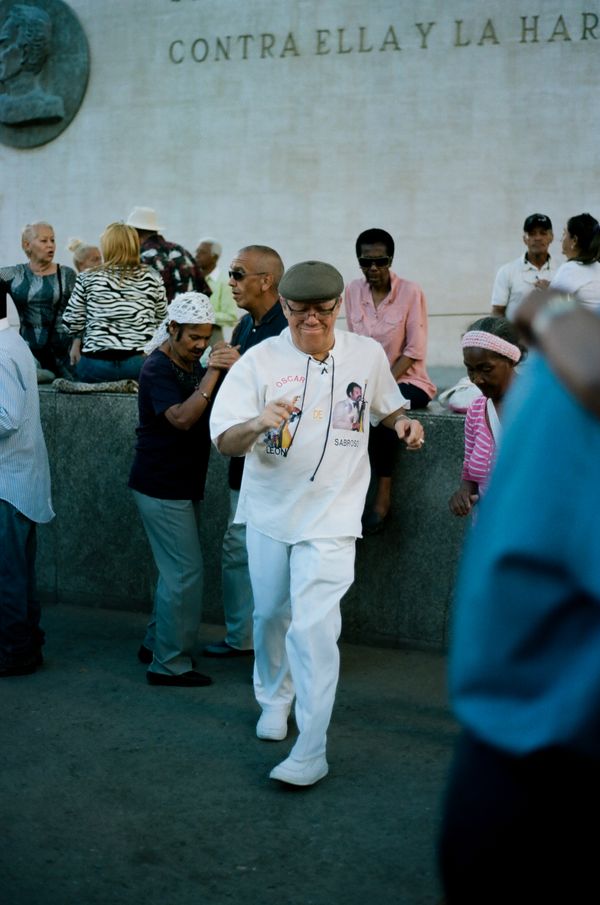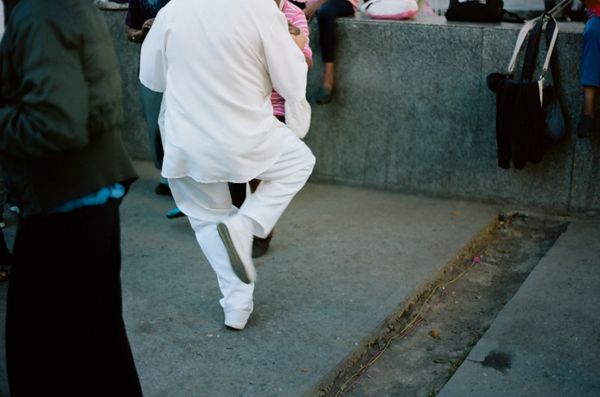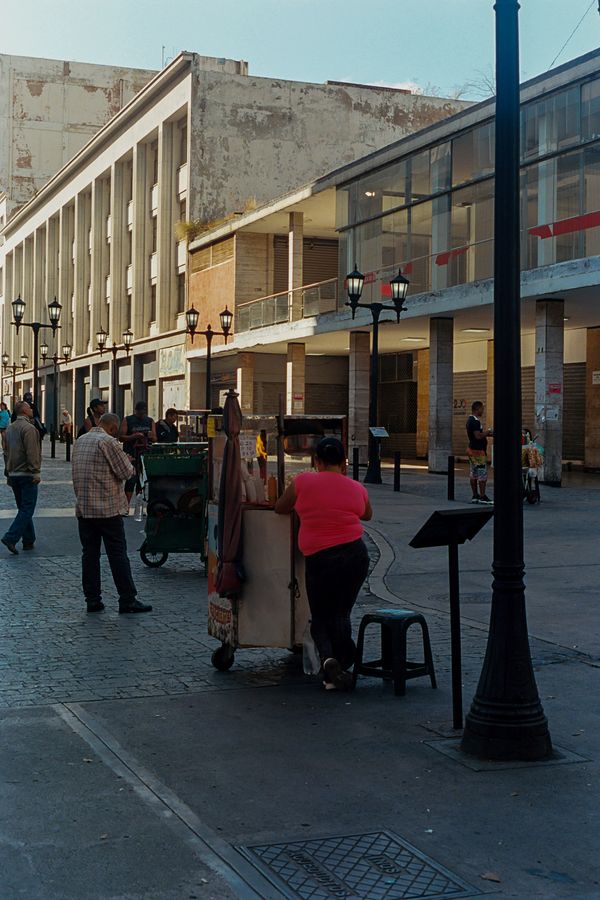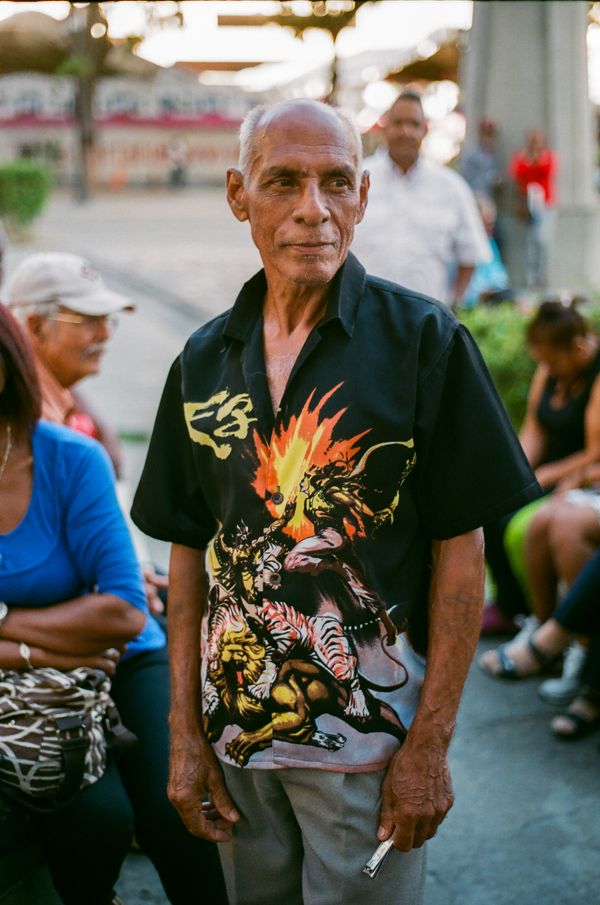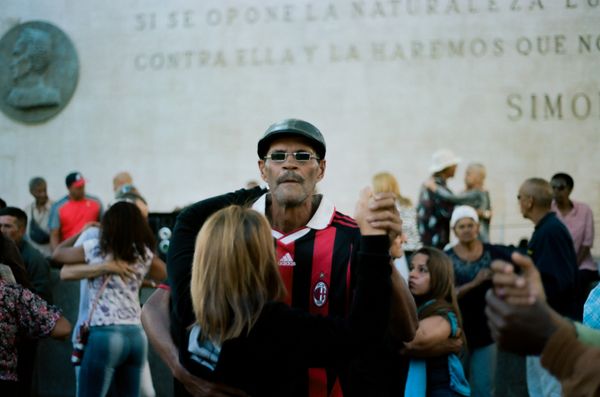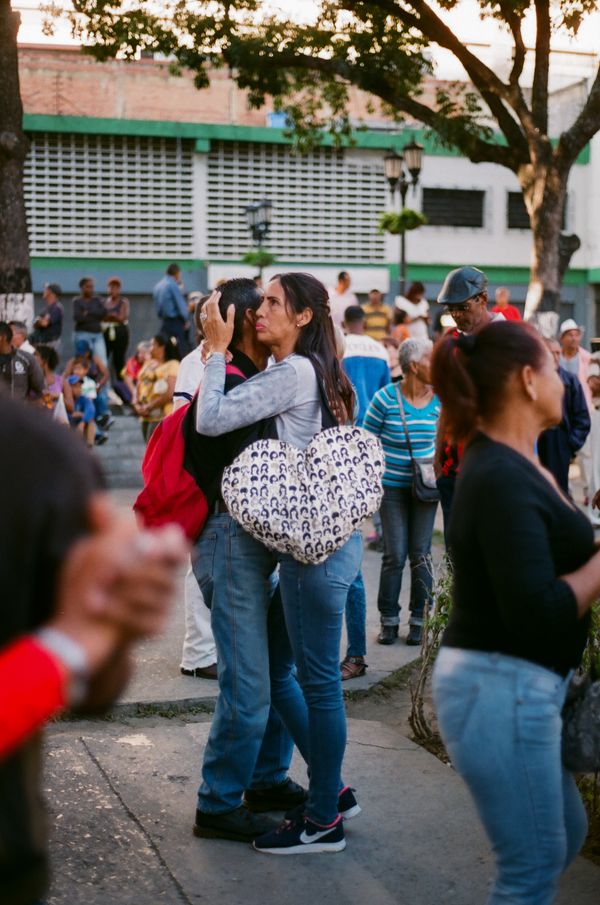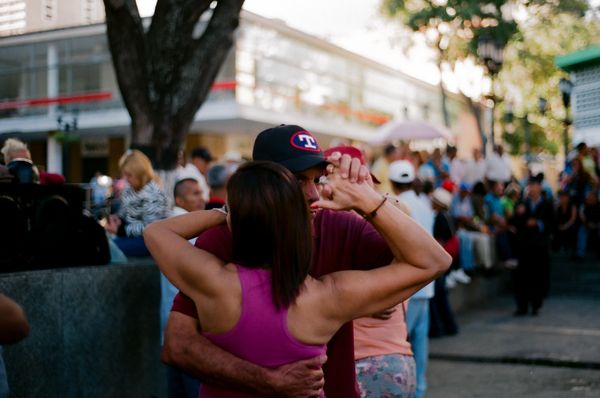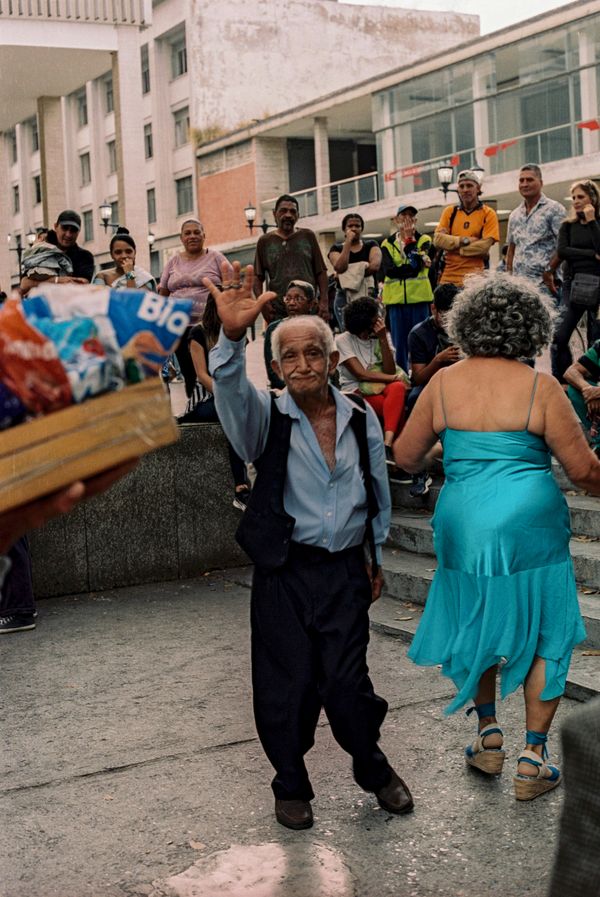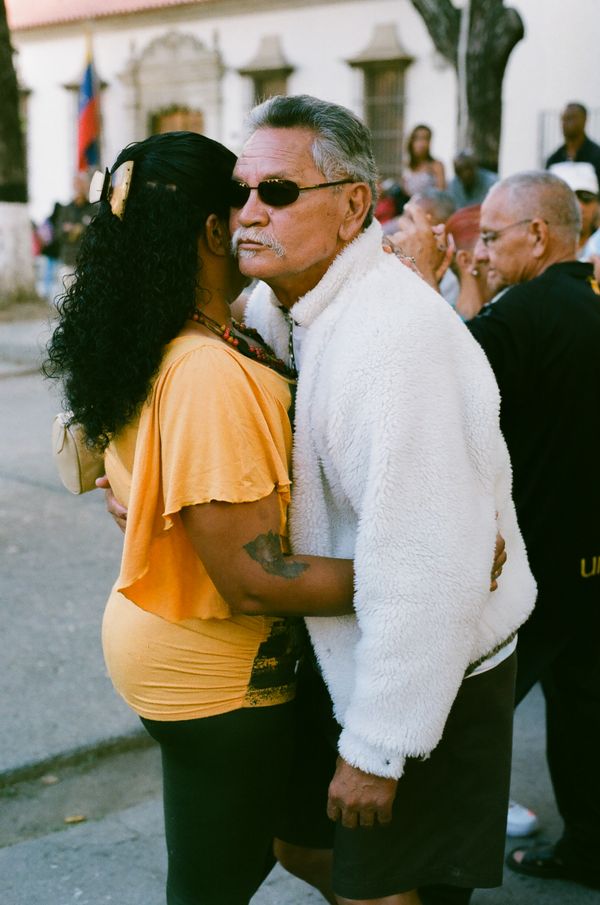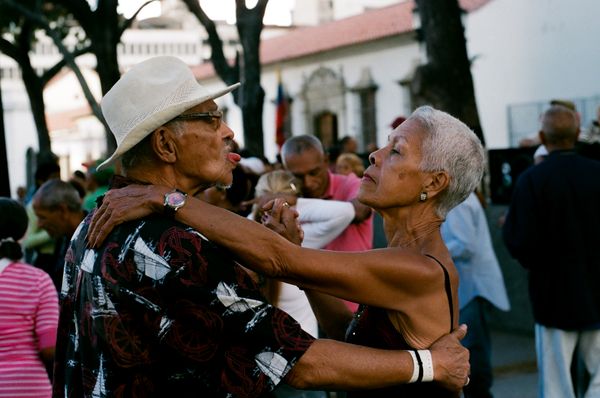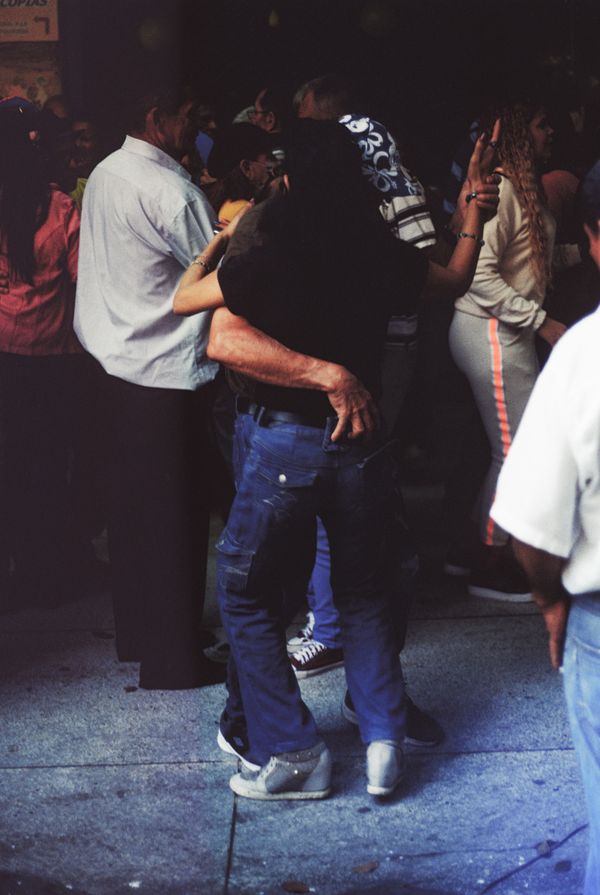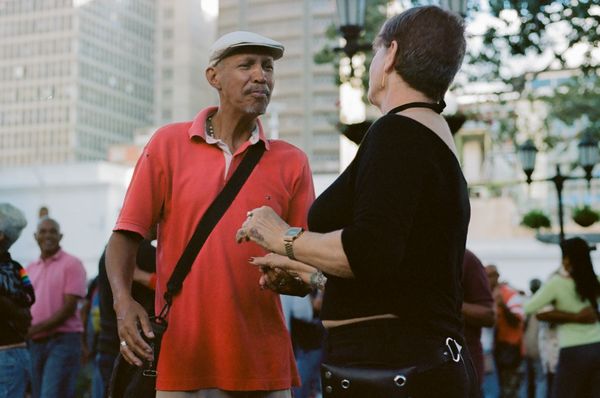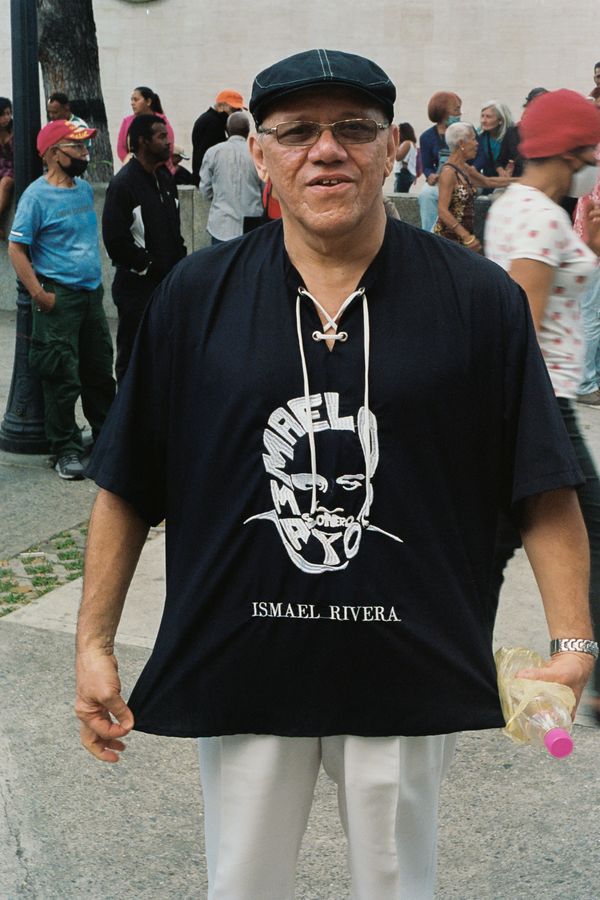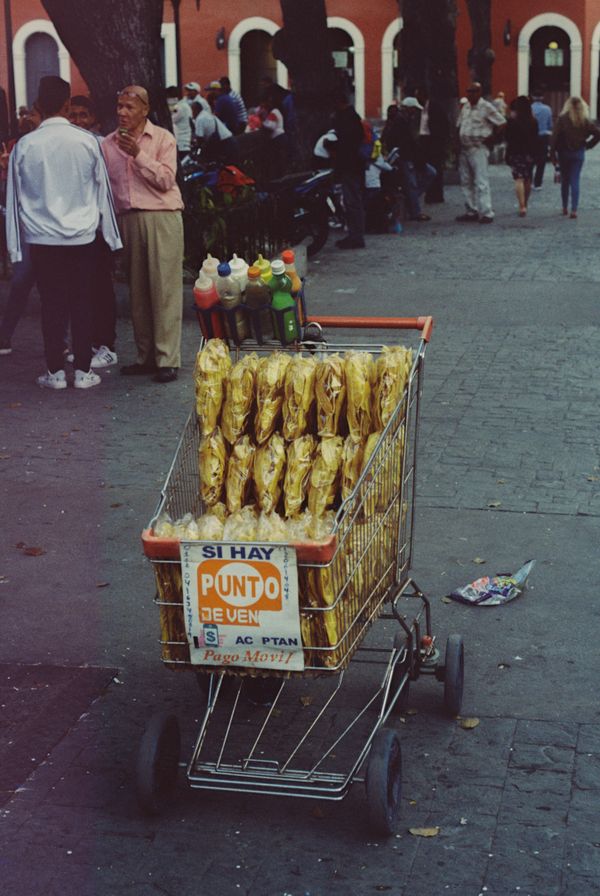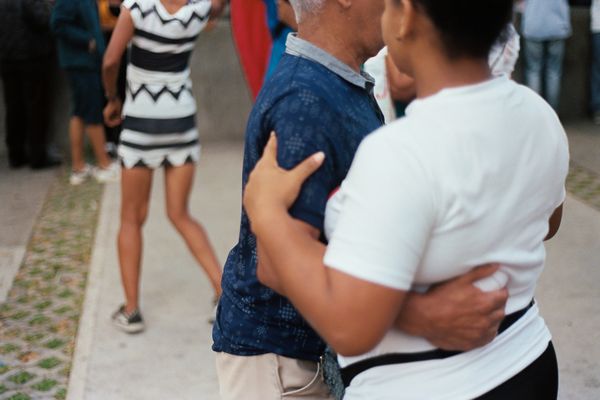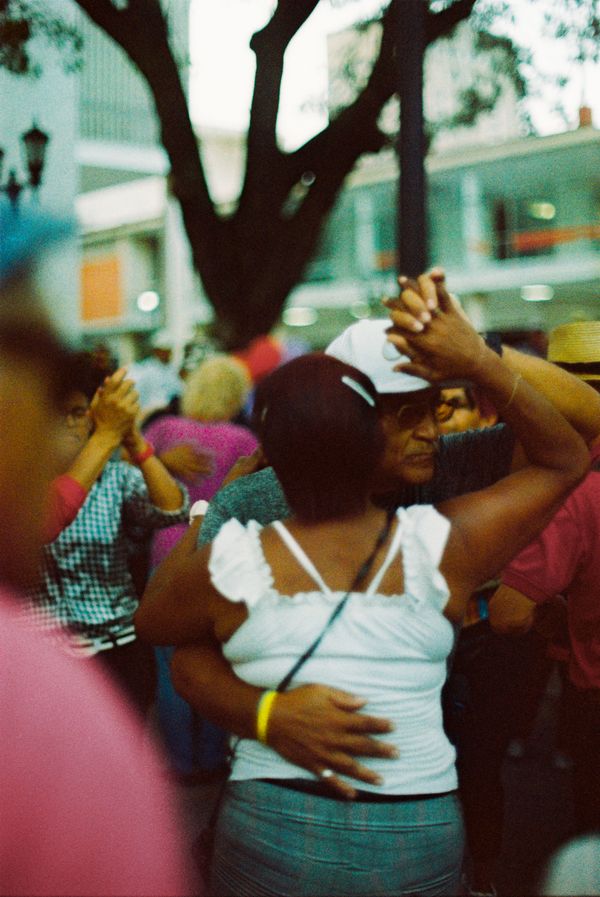"Los pasos prohibidos" (the forbidden moves)
-
Dates2018 - Ongoing
-
Author
- Location Caracas, Venezuela
"Los Pasos Prohibidos" documents the evolution of Caribbean identity in Caracas, where intergenerational spaces foster cultural expression, highlighting importance and adaptability of traditions in a urban environment.
"Los Pasos Prohibidos"—translated as The Forbidden Steps—captures the essence of individual expression in salsa dancing, where each dancer brings their own unique, signature moves to the floor in an unspoken, yet highly anticipated, friendly competition. This element of personal flair is what keeps the dance dynamic, compelling, and ever-evolving, continually fueling the vibrancy of the community and the tradition itself.
Una rumba in Venezuela is a celebration; it is a vibrant fusion of music, dance, and food, deeply rooted in joy and drama, and has become an institution in its own right. This project seeks to document the intergenerational spaces where these celebrations unfold, beginning with La Plaza El Venezolano in Caracas, Venezuela. In this public space, elderly individuals have gathered every weekend to celebrate their cultural identity through a rumba, creating a powerful and communal expression of belonging.
As the afternoon fades into evening, La Plaza El Venezolano transforms into a sanctuary of music and movement. It becomes a liminal space where tradition meets new faces, inviting both participants and onlookers to shed their inhibitions and partake in an experience that is as deeply spiritual as it is communal. The project aims to explore both the physical and emotional landscapes of these gatherings, highlighting their significance as acts of personal and collective self-expression.
In this context, the space itself emerges as a living testament to resilience, joy, and community. It is a place where individual and collective identities flourish, and where a profound sense of belonging is cultivated. For the dancers, rumba becomes an act of worship—a celebration of life, a defiance against time, and a ritual that transcends the individual.
Through this project, I aim to tell the story of how cultural practices, such as dance and music, shape identity and foster community. The resulting visual narrative will honor the lives of those who preserve tradition while illustrating how these practices evolve and adapt within an ever-changing urban landscape. Amid the tumultuous transformations in Caracas, La Plaza El Venezolano stands as a pillar of stability, grounding the city’s cultural identity in the hands of those who have maintained its legacy and those who continue to carry it forward.
This project is about preserving memories while exploring how cultural traditions endure, evolve, and connect us all.
